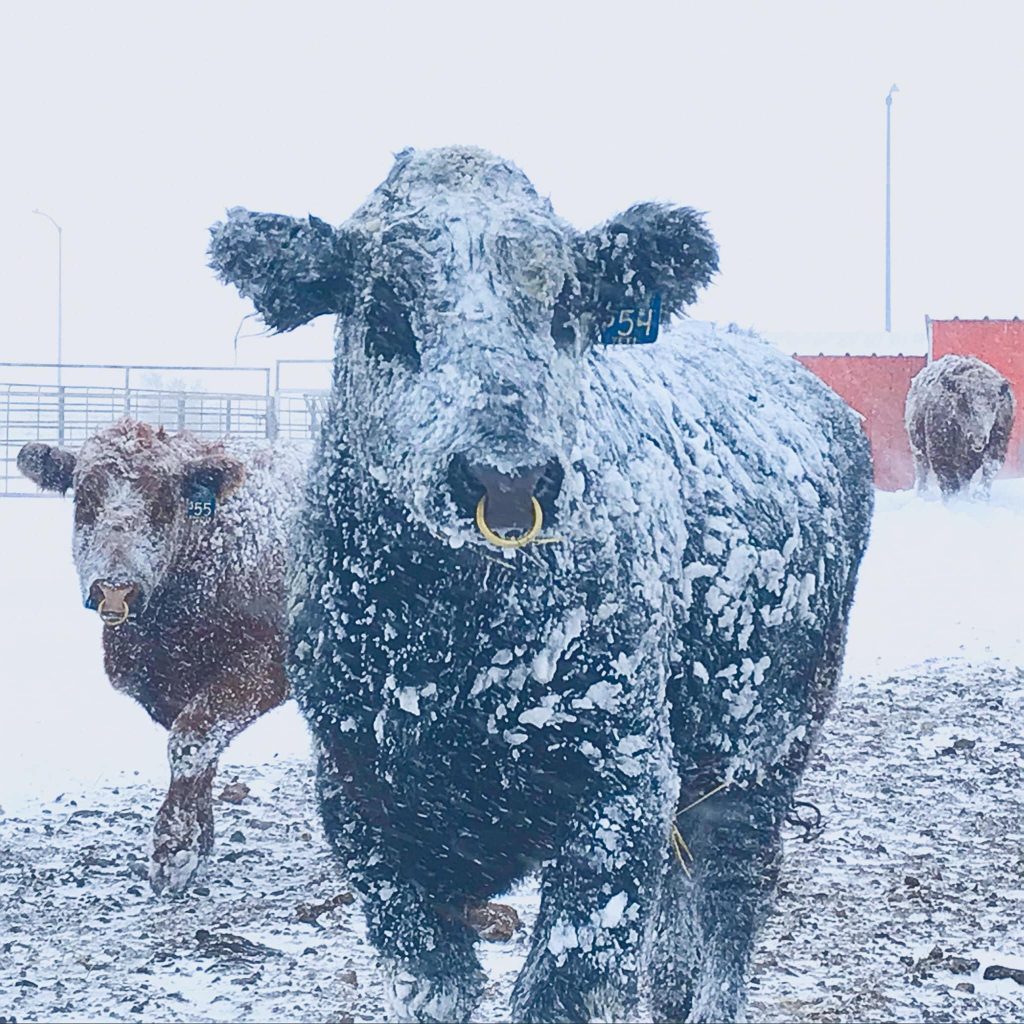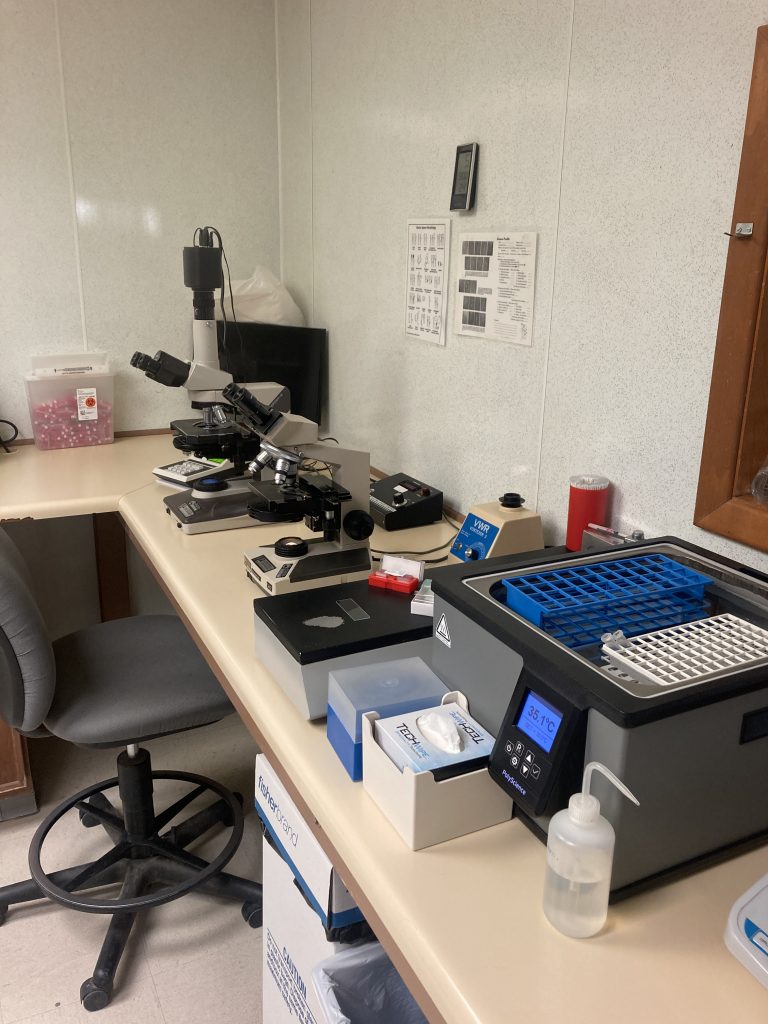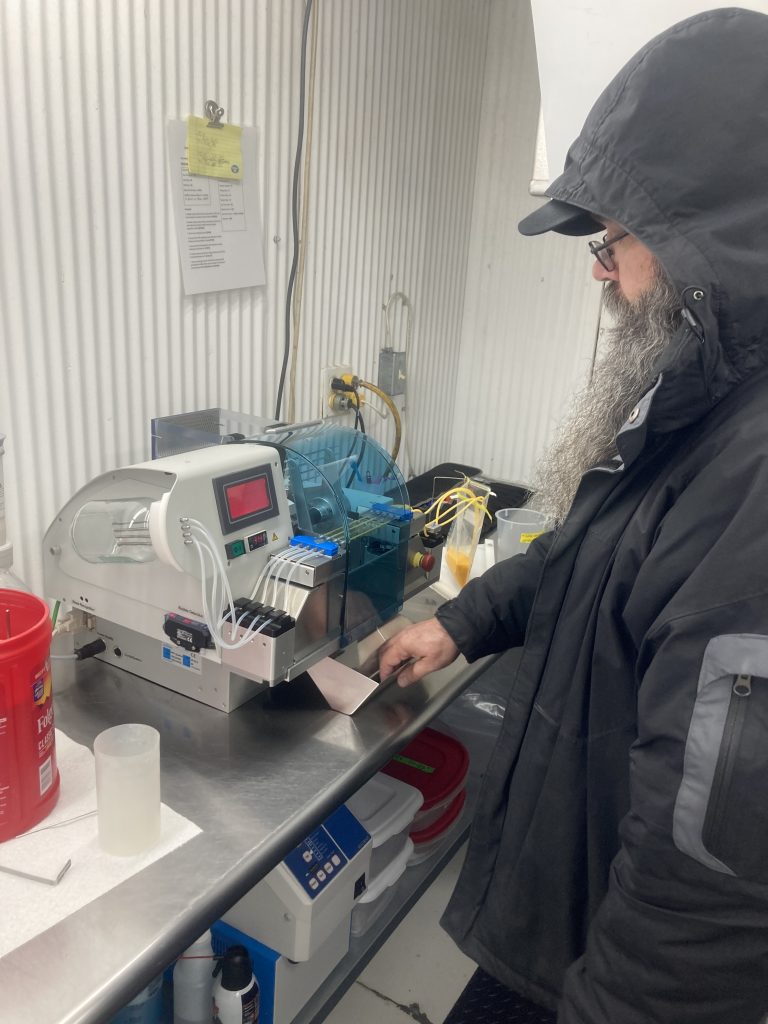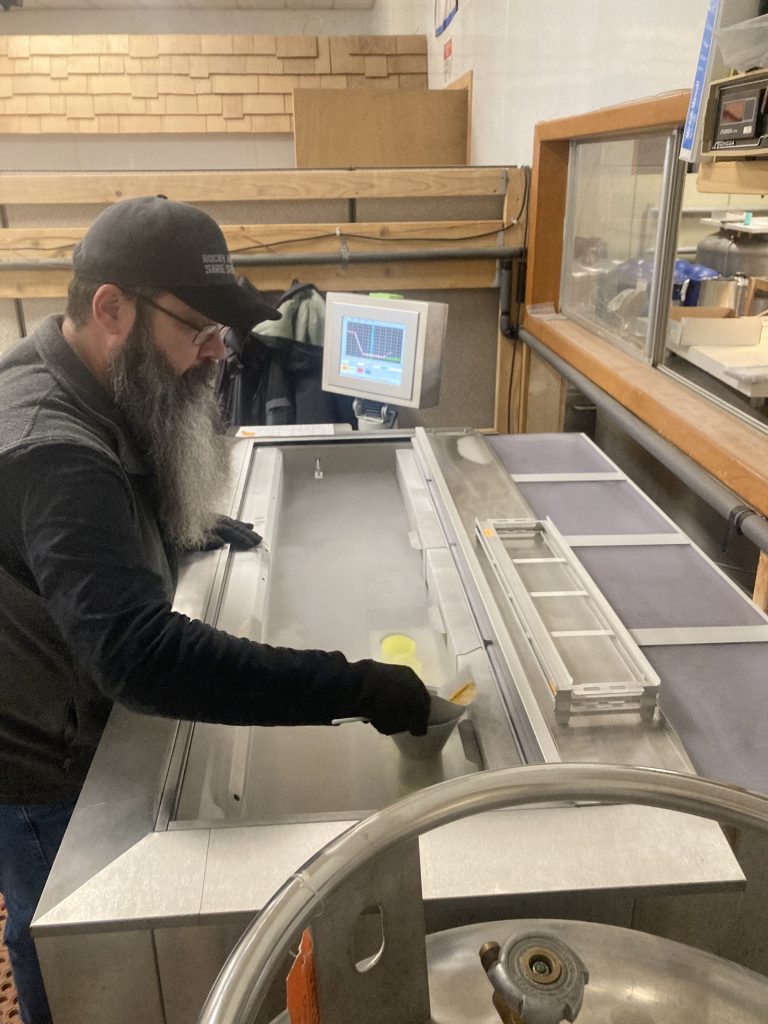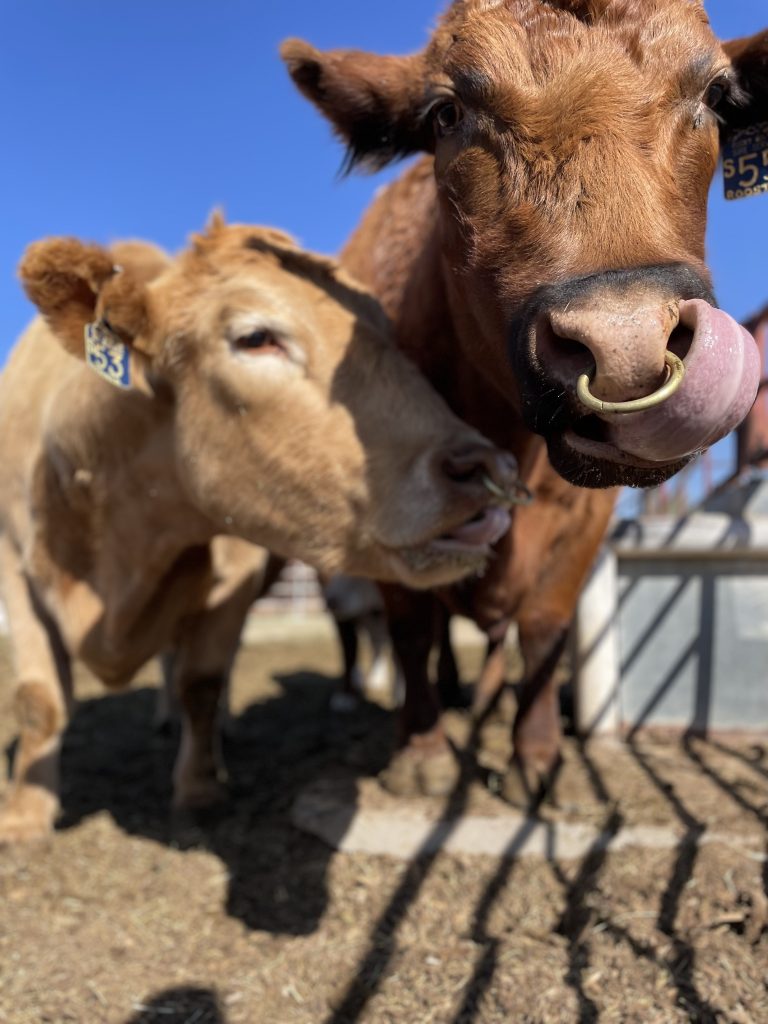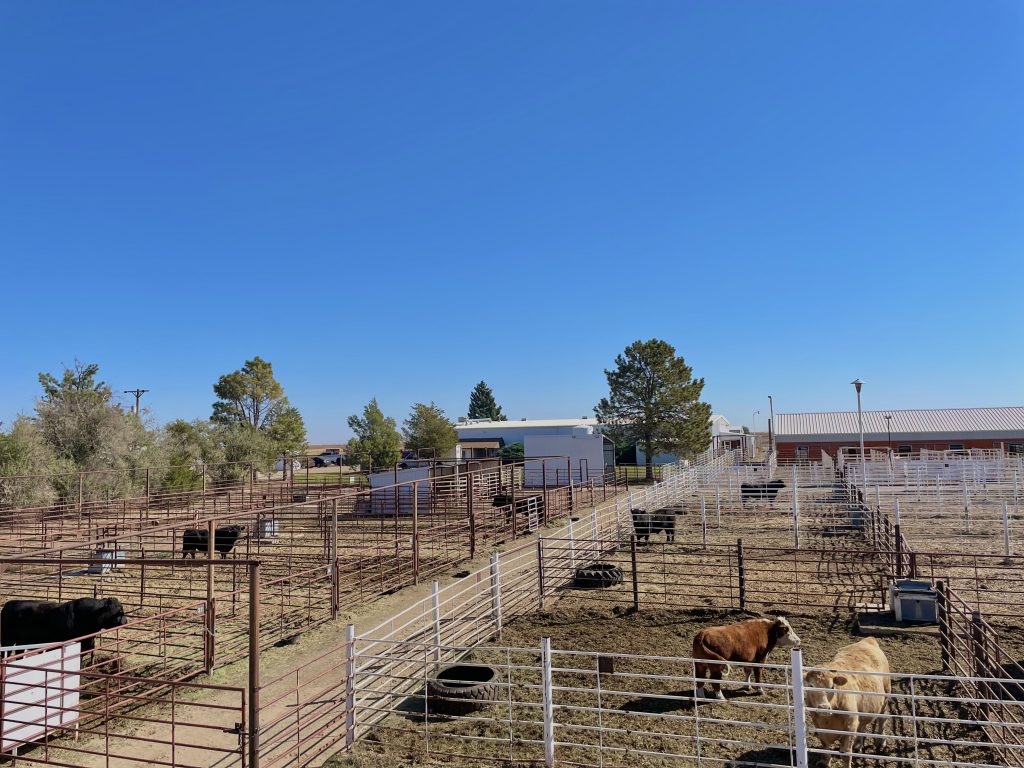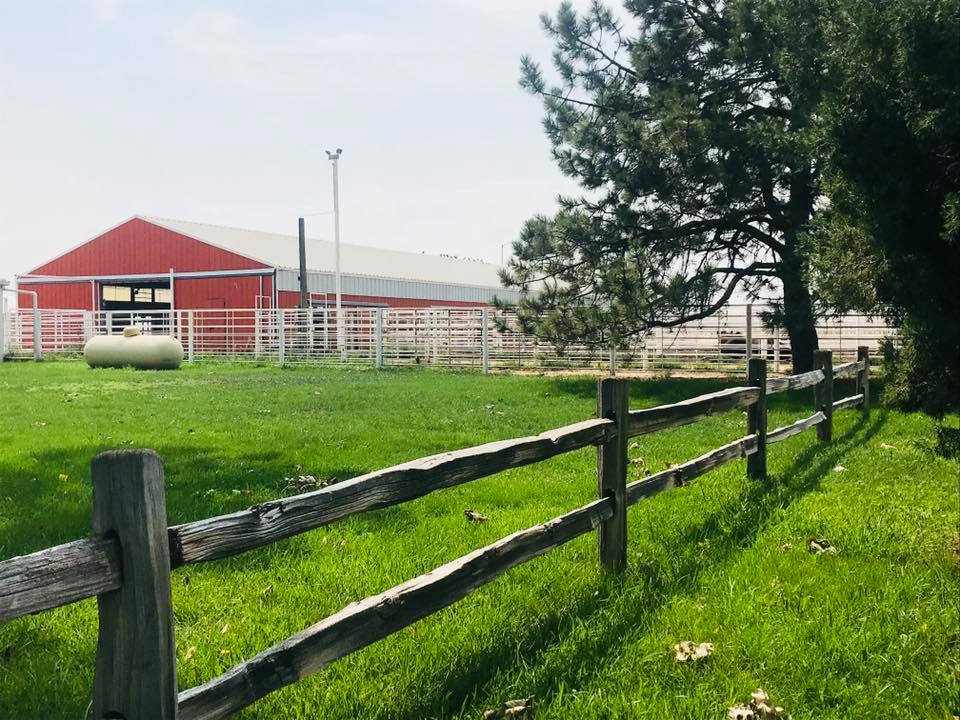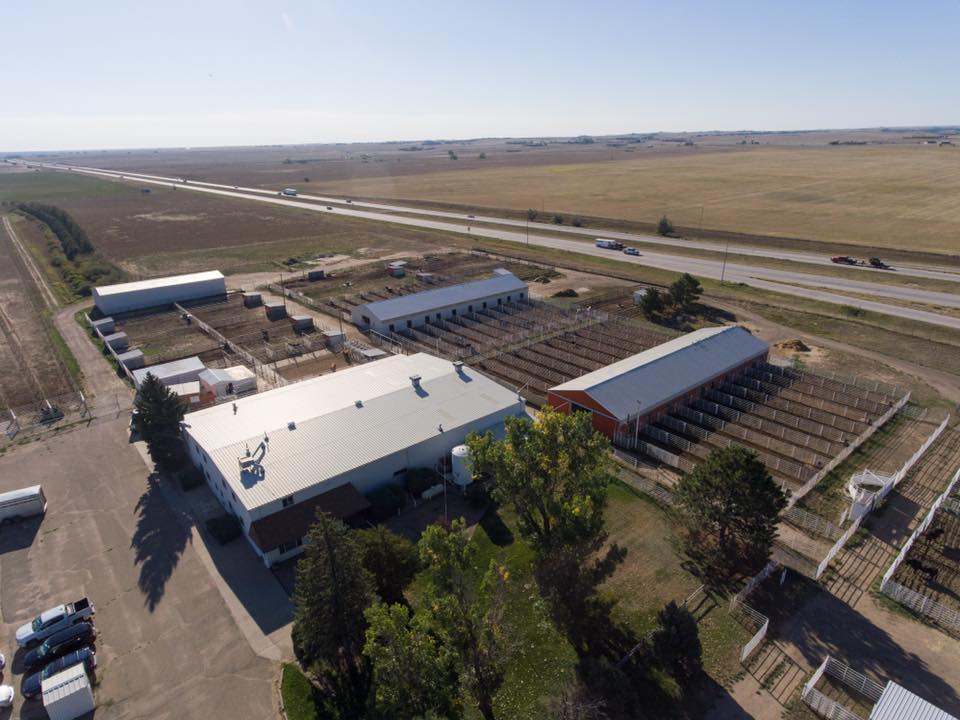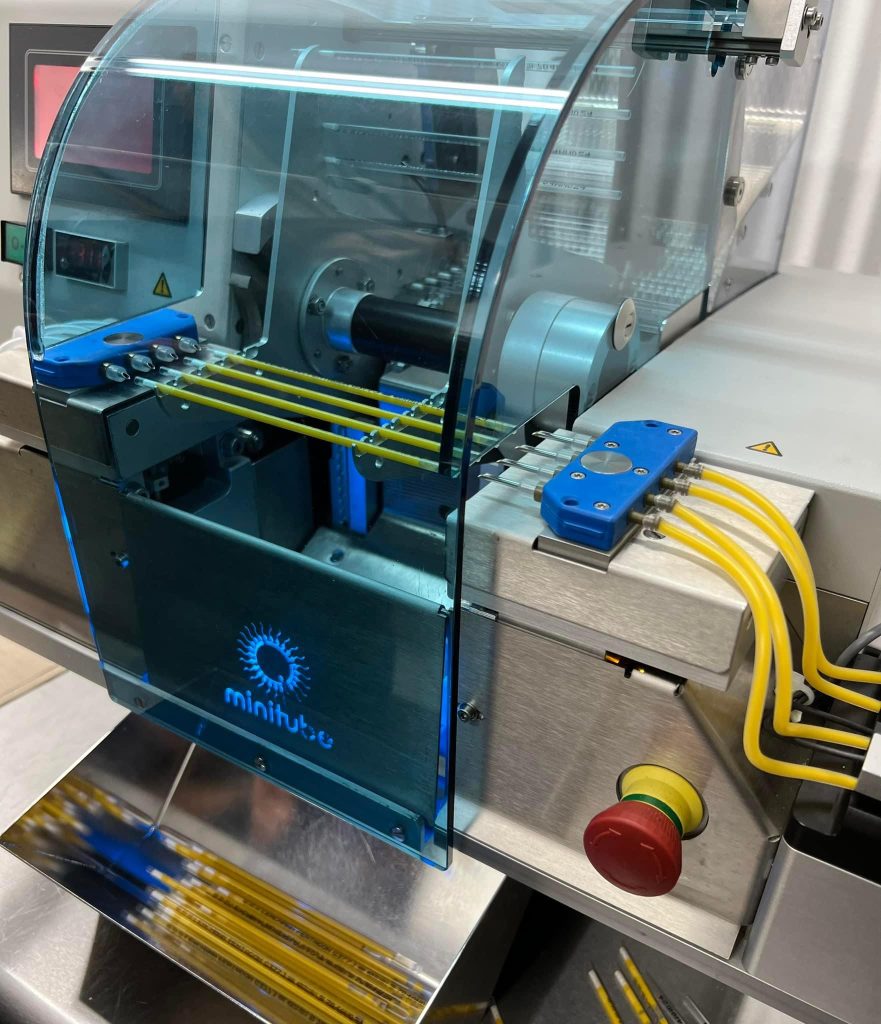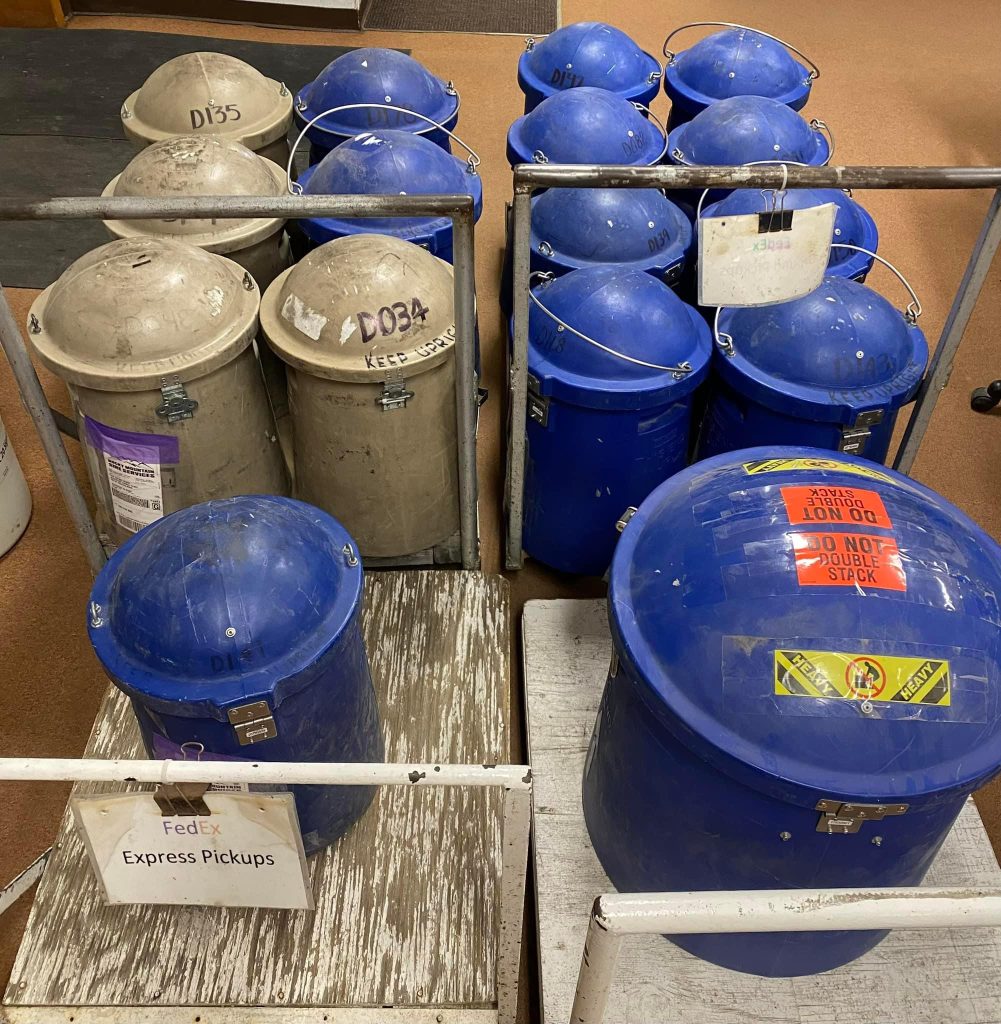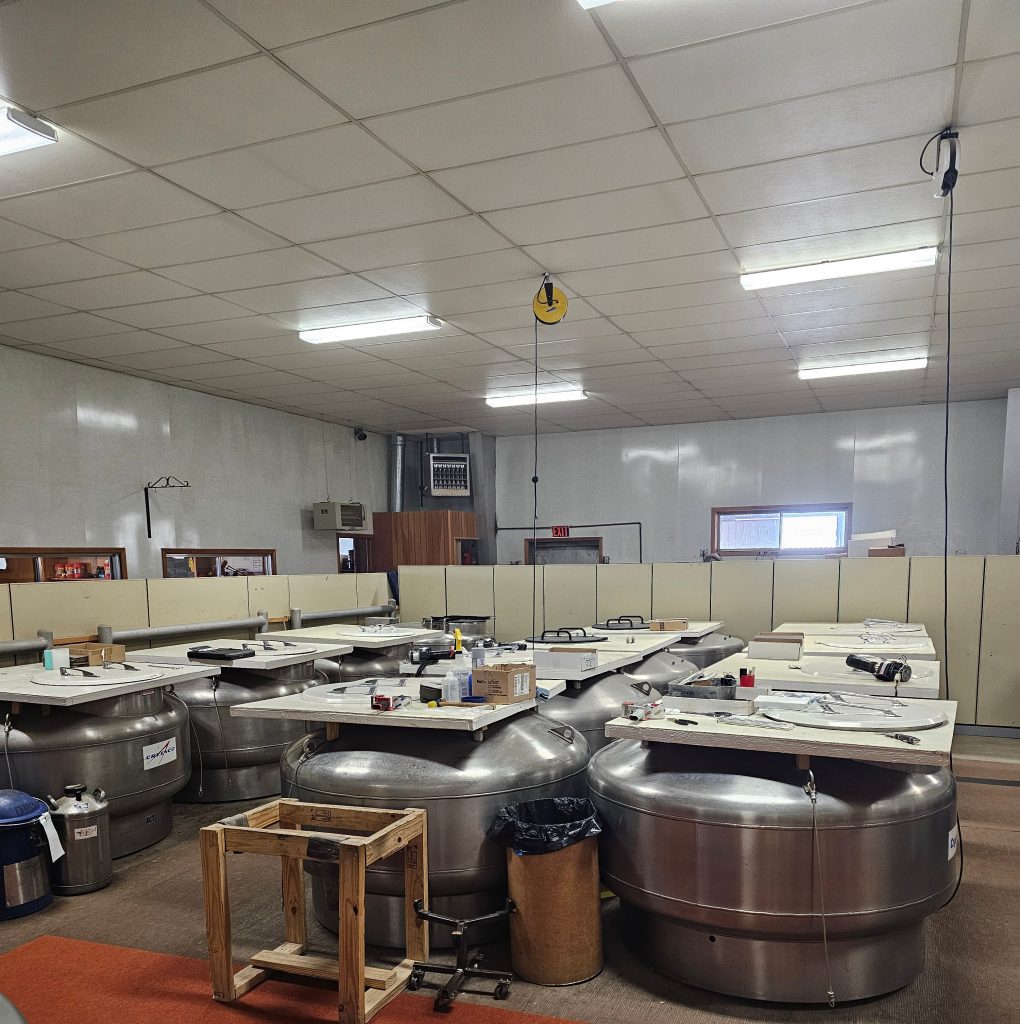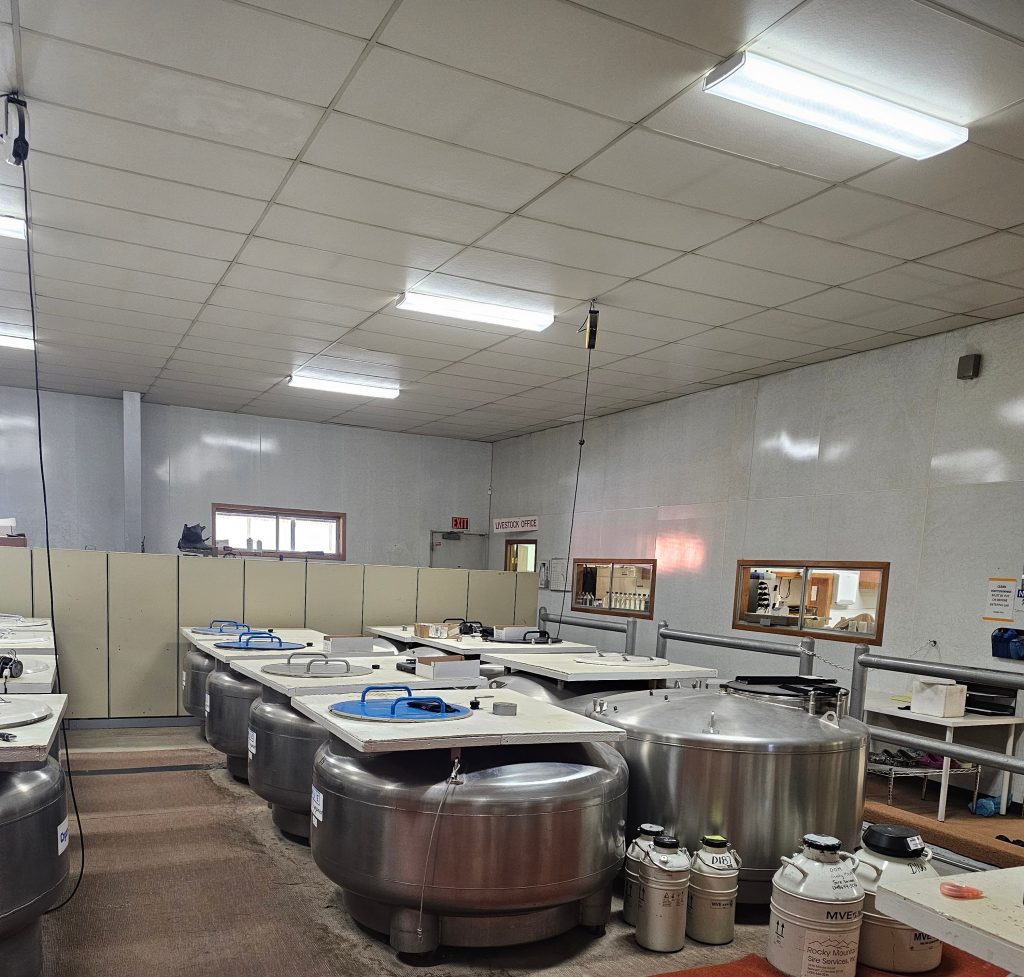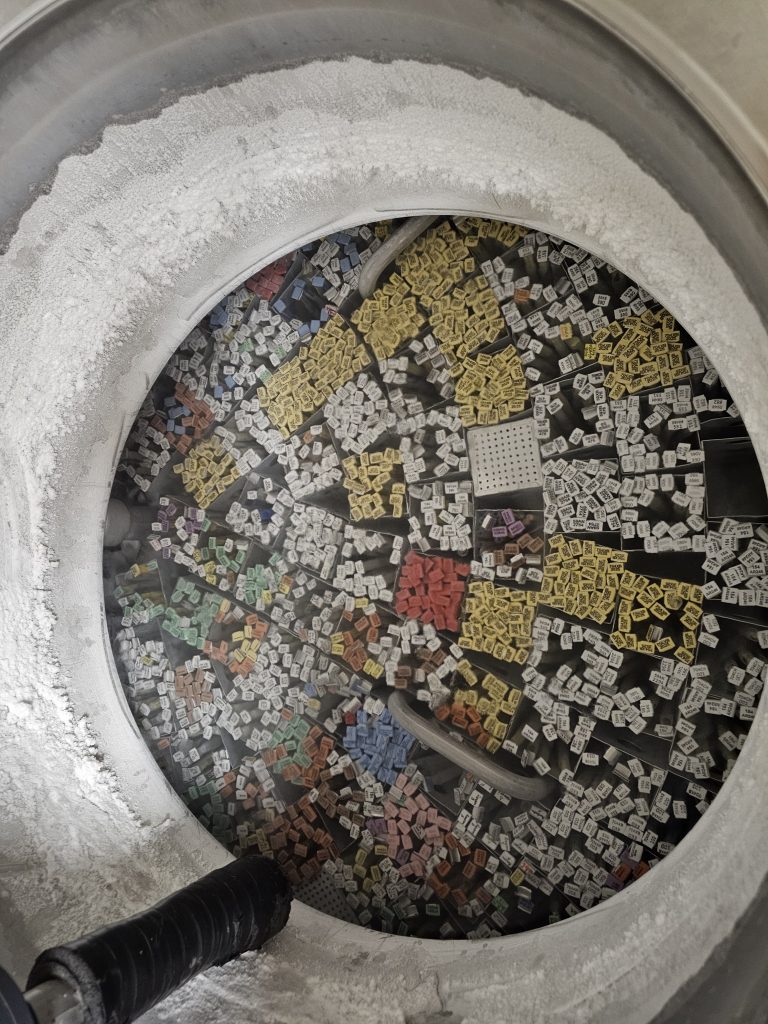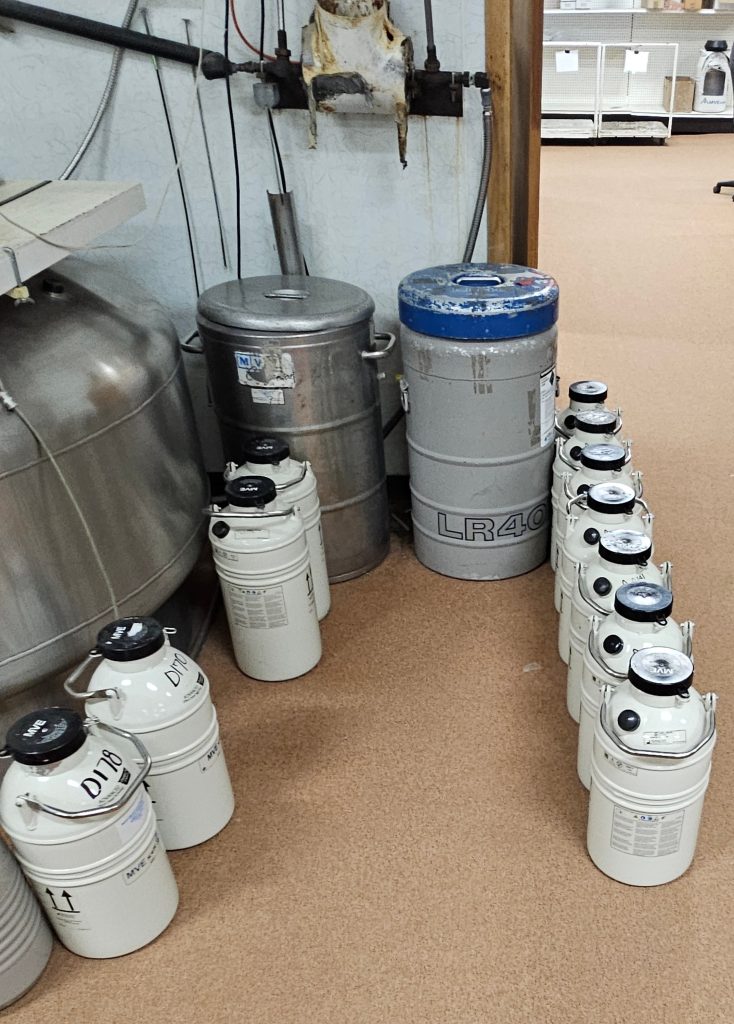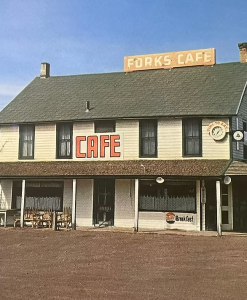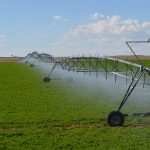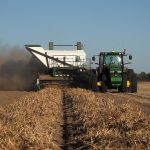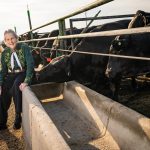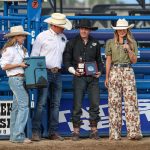Breeder’s Connection 2025 | Custom repro in the Rockies
Rocky Mountain Sire Services offers niche semen collection
Rocky Mountain Sire Services (RMSS) is a custom bull stud operation located 30 miles east of Denver in Bennett, Colorado, with the mission of serving as an independent custom bull collection service for clients throughout the Midwest. “We work with our customers to provide custom services – no order is too small or too big,” says Sara Czmyrid-Davidson, laboratory manager at RMSS. The bull owner determines the straw count needed and the type of extender, and the facility cares for and collects the bulls until that quantity of approved quality semen is reached. Sometimes it takes a week, sometimes a bull can be there for months.
The business officially started in 1992, although the location had been used as a collection facility for a long time prior. Maximum capacity of the facility is 190 head, but the crew says around 100 bulls is their normal, most efficient head census. “We match the breeding season – we are the busiest mid-October to the end of June, but we never completely stop collecting; we always have a few bulls trickling in throughout the year,” says Czmyrid-Davidson.
Bulls are managed in three different herds, according to the end purpose of the semen. Bulls in the pre-entry group have fewer health requirements and are not verified for export. The isolation group is a mid-point on the way to the resident herd. These bulls are isolated for six weeks, while additional health testing is conducted based on the importing country’s requirements. The resident herd is the most bio-secure group. These bulls have completed all testing for export and are ready to collect. The size of the groups changes on a weekly basis – “Right now our resident herd is not as big as pre-entry, but last week it was the opposite,” says health coordinator Lainey Roberts.
The standard feed ration is always hay and grain and every bull gets a ration twice a day. If they are going through a health process, they get tested for diseases and to see if they have been vaccinated for certain diseases.
The bulls are put into two different groups, with each group collected twice a week. Semen goes through the process of collection from bull, pre-freeze processing, extension of the raw ejaculate, filling the extended semen into straws, then freezing the filled straws, after when they are ready for shipping
Although exported semen is a smaller percentage of their services, they still offer critical certifications that allow for foreign shipment. The facility is certified through the National Association of Animal Breeders – Certified Semen Services, an objective auditing service that provides industry self-regulation in the areas of semen, sire health and identification. As shipping manager, Brian Stumpfhauser has learned the intricacies of exporting. “As a certified facility, we do health testing for bulls so our customers can export semen, and we help them with that process – all the procedures and requirements from the bulls arriving to shipping the semen internationally,” he says. Every country is different in their rules for importing semen, most of it involves health testing and protocol, and the process is very tailored to the needs of each customer.
“China is the hardest. We don’t do anything with China, and New Zealand is difficult,” says Stumpfhauser. “We usually have someone on the other end doing all the import work, and on our end, we have to show that all the testing was done for the bull. We do everything we have to do to make it work for our customers.”
Roberts says one of the unique aspects of their job is they are among the first to see new technology. “Things like computerized sperm analysis machines have made a lot of the processes we do very automated and allow us to create a more predictable product. We can also do really cool things for our clients that maybe 20 years ago might not even have been possible. If we have a client with straws of their great-great grandfathers cattle genetics that were collected in the 1960s, now we have the technology to look and see if they’re viable. It’s not just the luck of the draw as it used to be.”
Czmyrid-Davidson says their work in the industry gives them a front-row seat to the trends and the future of the livestock industry. “Being custom, we get to see changes across every breed – the changes in preferences, the ideal type, the uses; we’re not just working with one set of genetics or one mindset. Everyone has a different vision about what they are going to do with their animals. It’s a really cool opportunity.”
She added that beef on dairy is a trend that is really gaining traction. “We’ve been on the cusp of it for some time and spent a lot of years doing beef on dairy work,” she says. “It’s been a really cool opportunity that we’ve learned a lot from, how to use the right extenders and push those bulls into higher fertility; it’s been really interesting.”
Stumpfhauser says the biggest change in his work over the 15 years he’s been there has been in the lab. “We have a lot of new technology, yet we’re still using a lot of the same thought processes on what makes semen great. Some things stay the same.”
Roberts says the future of the business will be “to continue doing what we do best – providing our customers with custom semen collection.” The majority of their collection is for customers who are marketing their bulls on their own or using it for themselves. Some store it for use down the road when they want to bring a certain bull back into their stock.
She says they remain unique in their ability to provide a service to states in the Midwest and along the Rocky Mountain front that don’t have a collection service, but a wide livestock base and a demand for their services.
